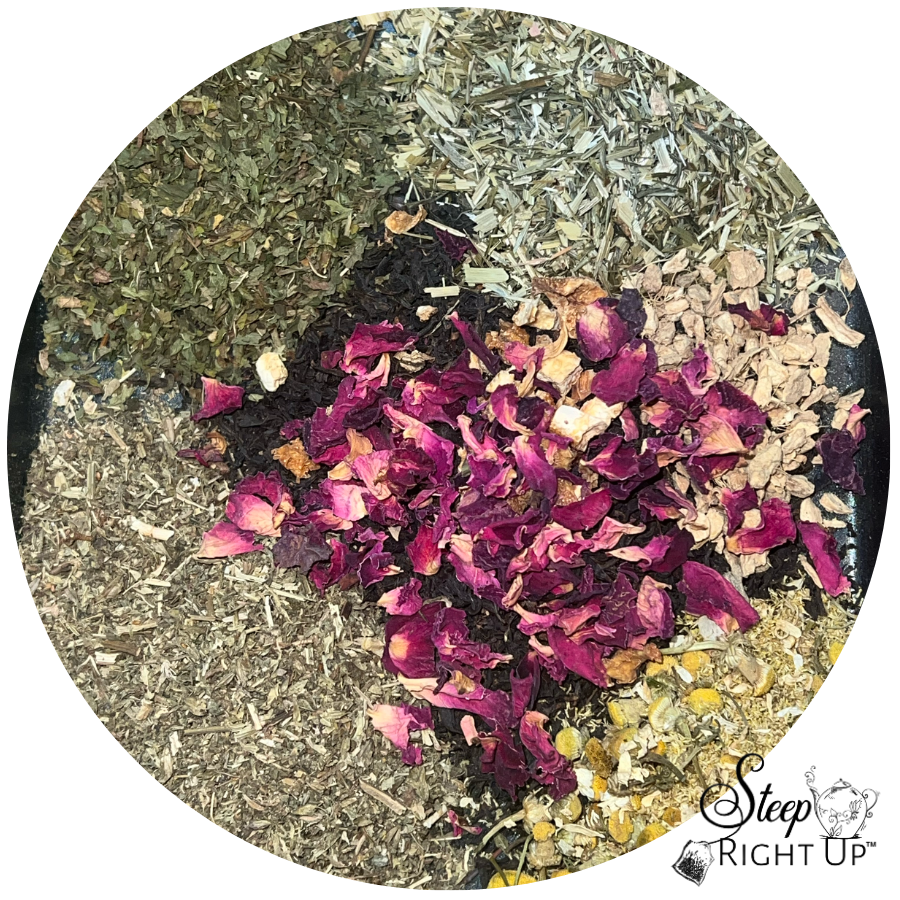Additional Info:
- Common Names (AKA): Pot Marigold, Garden Marigold (not Tagetes spp. marigold)
- Main Health Benefits:
- Skin Health: Promotes healing of wounds, cuts, and bruises; anti-inflammatory.
- Digestive Health: Can help soothe digestive issues.
- Immune Support: May enhance immune function and support overall health.
- Energetics:
- Taste: Pungent, Slightly bitter, floral
- Temperature: Warming, Drying
- Effect on the Body: Soothing, anti-inflammatory
- Blends Well With:
- Herbs: Chamomile, rose petals, and lavender
- Fruits: Citrus fruits and apples
- Teas: Green tea or white tea (for a calming floral infusion)
- How to Prepare:
- Tea: 1-2 teaspoons of dried petals per cup of boiling water, steeped for 10 minutes, up to 2 times a day. Or add to a blend of other supporting herbs to create your own tea or tisane.
- Known Precautions/Contraindications:
- Allergies: May cause allergic reactions in individuals sensitive to plants in the Asteraceae family (chamomile, daisy, feverfew, sunflower, etc).
- Pregnancy: Generally considered safe, but consult a healthcare provider.
- Additional Information: Calendula petals are edible and can be used to garnish salads, soups, and other dishes. They add a vibrant color and a slightly peppery, tangy flavor. Calendula is renowned for its skin-healing properties. It's commonly used in ointments, creams, and balms to soothe minor burns, cuts, and rashes. It helps promote skin regeneration and reduce inflammation.
- Origin: Egypt, Moldova, Albania
Available in 1 ounce or 2 ounce quantities.
(*Organic)
Disclaimer: The information provided on this website is for educational and entertainment purposes only and is not intended to offer medical advice or replace the services of a qualified healthcare professional. We are not physicians, and the content should not be construed as medical advice or treatment. Always consult with a qualified medical health professional who is trained in the use of herbs and supplements before making any changes to your health regimen or if you have any concerns about your health. The information here is also not an exhaustive resource, we encourage you to always do further research.
top of page

No Reviews YetShare your thoughts.
Be the first to leave a review.
Related Products
bottom of page

























